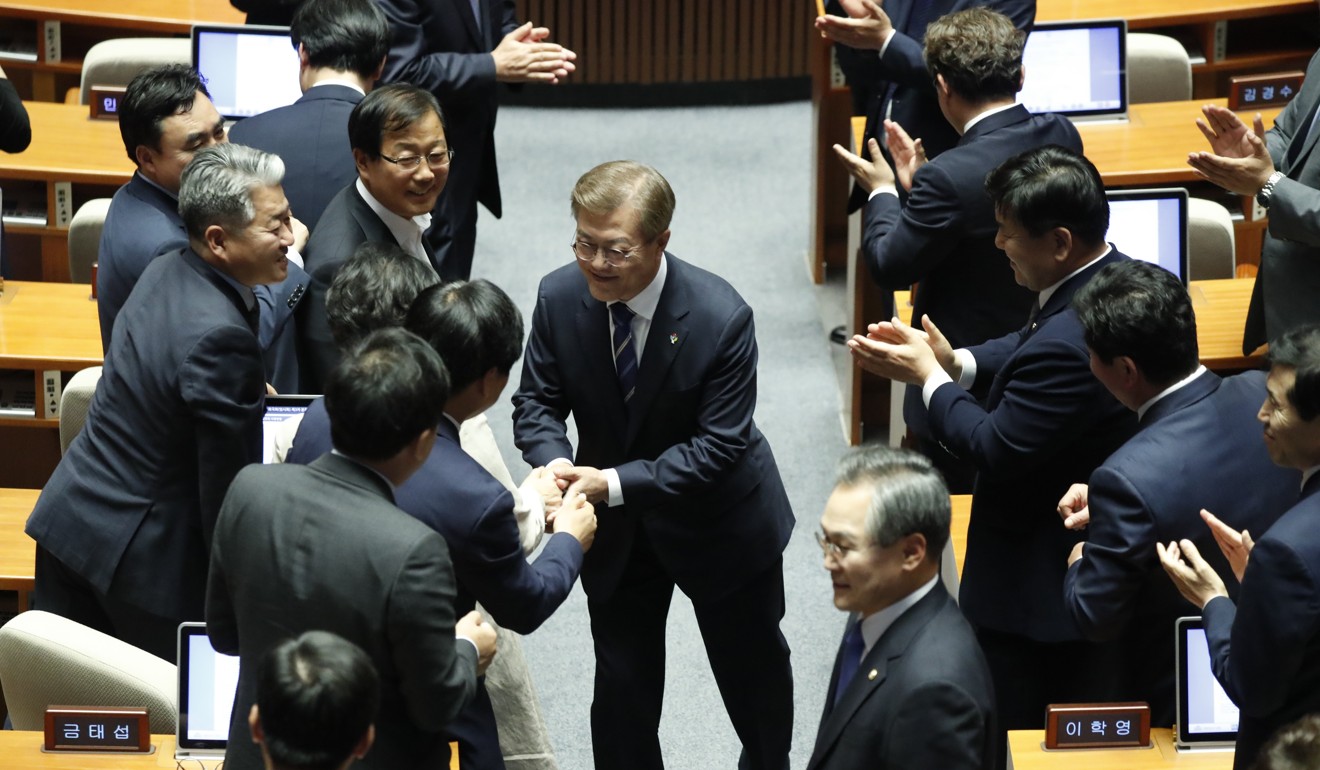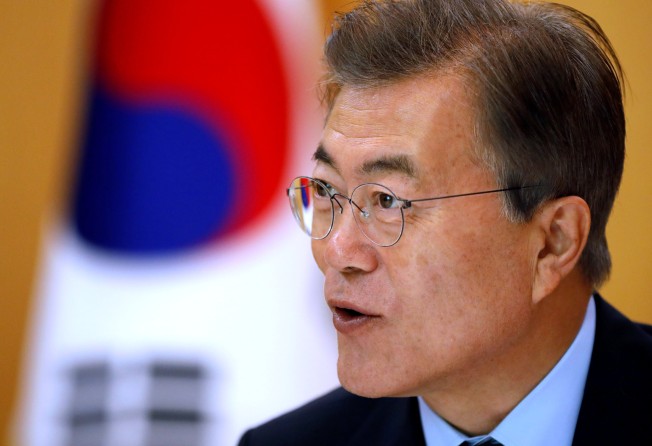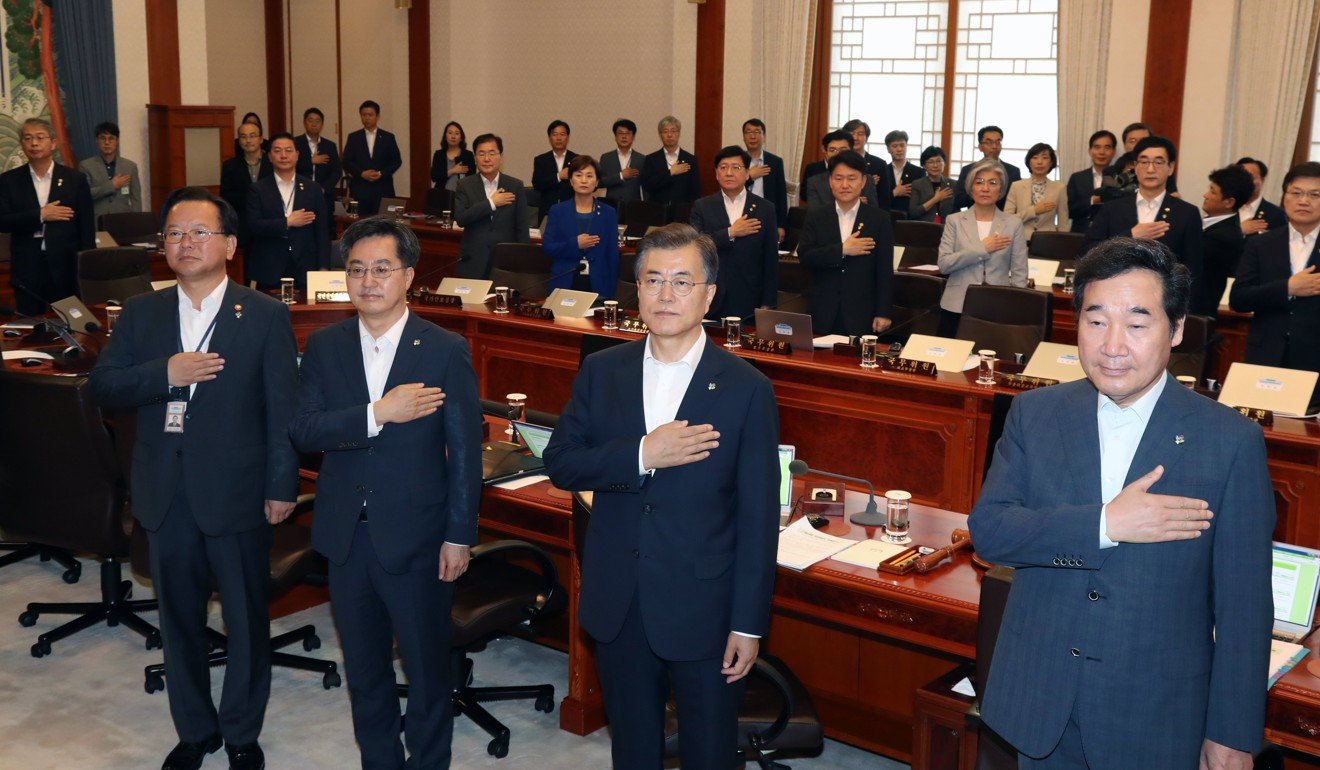
How South Korean President Moon’s strict moral code is hurting his cabinet picks
Discussions on three nominations are underway, but the opposition is resisting his picks for defence minister and labour minister

In his campaign to become South Korea’s president, Moon Jae-in touted his credentials as a human-rights lawyer and pledged to enforce a strict moral code in picking his top officials.
Now, two months after being sworn in, Moon’s own standards are making it hard for him to fill his cabinet.
Four of the 18 positions are still occupied by officials from the prior administration of Park Geun-hye. Discussions on three nominations are underway, but the opposition is resisting two of his picks – for defence minister and labour minister – citing concern about their records. While parliamentary approval isn’t required, Moon needs the opposition on board. Otherwise he could risk his economic reforms being stalled in a legislature he doesn’t control.
The president has tripped himself up with his code aimed at removing “deep-rooted evil”. Having announced grounds for exclusion – anyone who has dodged military service, evaded taxes, made speculative property-market trades, falsely reported an address or plagiarised a thesis, among others – Moon then went ahead and nominated some candidates who fell short.
Moon knew some of his picks would violate his code but, believing they were trivial infractions, he sought the public’s understanding, local media reported. Moon only learned of the flaws in other candidates after the opposition and local media unearthed them, according to the reports.
“Moon is bringing in new faces such as scholars or people with a civic group background as he seeks nominees with same political code who can deal better with the establishment’s resistance to reforms,” said Choi Chang-ryul, a political commentator and professor at Yong In University.
“But private-sector figures are more fragile to ethics rules than lifetime government officials.”
His ruling Democratic Party of Korea has about 40 per cent of seats in parliament, so he needs the support of other parties to pass legislation. But members of the Liberty Korea Party, the People’s Party and Bareun Party say many of Moon’s nominees are unfit for top jobs.
Hong Joon-pyo, a runner-up in the presidential election and leader of Liberty Korea, said his party “won’t approve policies if they are run by unqualified ministers”.

A test for Moon will be a vote on an extra budget, which could come as soon as this week. Over the longer term he needs cooperation to revise the constitution – he wants to change the five-year presidential term – and push through reforms to family-run conglomerates. He’s also seeking to curb corruption in the defence sector, plus the taxation and legal systems.
Moon’s approval rating edged up again, to 83 per cent last week, according to a Gallup Korea poll, with expectations high for his administration after the unpopular government of Park, who was impeached and now faces a corruption trial. Still, only 6 per cent of respondents who approved of him said his Cabinet appointments were a reason to support him.
Several of Moon’s appointments and nominees have fallen afoul of his moral code. Currently under fire are Defence Minister candidate Song Young-moo and Labour Minister pick Cho Dae-yop. They’ve both admitted to drunk-driving offences.
Song, a retired admiral, has been accused by opposition politicians of nullifying evidence of his drunk-driving violation before receiving a military promotion. He has apologised, saying it was a one-off mistake 26 years ago. The opposition has also said he faked an address and received “too much” in advisory fees from a law firm and defence company after retirement.
Cho has been attacked by an opposition lawmaker for working as an outside director for a company that the politician said has delayed wage payments to employees. Cho said he was unaware of his apparent involvement with the firm.

Previous appointments have also triggered controversy. During Prime Minister Lee Nak-yon’s confirmation hearing, he said his wife, a former art teacher, falsely reported her address so she could work in a wealthy area. Opposition lawmakers also alleged his son dodged conscription and that Lee abused his power by helping his wife sell paintings at high prices to provincial entities. Lee has denied those claims.
Foreign Minister Kang Kyung-wha, a former special adviser to UN Secretary General Antonio Guterres, admitted to using a fake address – a common practice in South Korea – to get her daughter into the high school she attended. Moon bypassed parliament to appoint her despite opposition objections.
In making these appointments, Moon sought public understanding of his moral code. “I still don’t think this was too idealistic a pledge, but what I set up was a broad principle and we need more specifics to carry it into an action,” he said.
“Moon may get confidence from his high popularity and press ahead with appointments of his nominations, but a twist in his relationship with the opposition would leave his reform agenda up in the air,” commentator Choi said. “The president should cast his net wider to find better candidates or play politically a cleverer card of giving at least one nomination right to the opposition.”